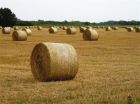(Press-News.org) A combination of rising costs, shrinking supplies, and concerns about global climate change are spurring the development of alternatives to the burning of fossil fuels to meet our transportation energy needs. Scientific studies have shown the most promising of possible alternatives to be liquid fuels derived from cellulosic biomass. These advanced new biofuels have the potential to be clean-burning, carbon-neutral and renewable. Some could also be delivered through existing pipelines and used in today's engines, replacing gasoline on a gallon-for-gallon basis with no loss of performance.
That is the promise of advanced biofuels and the focus to date has been on the technological challenges of producing high quality biofuels in a way that is both sustainable and economically competitive with gasoline. In addition to the technological challenges, however, there are also important social, economic and environmental challenges that must be addressed.
"These challenges include constraints imposed by economics and markets, resource limitations, health risks, climate forcing, nutrient cycle disruption, water demand, and land use," says Thomas McKone, an expert on health risk assessments who holds a joint appointment with the Lawrence Berkeley National Laboratory (Berkeley Lab) and the University of California (UC) at Berkeley. "Responding to these challenges effectively requires a life-cycle perspective."
McKone is the lead author of a report titled "Grand Challenges for Life-Cycle Assessment of Biofuels," which was funded by a grant from the Energy Biosciences Institute (EBI), a partnership between UC Berkeley, Berkeley Lab, the University of Illinois, and the BP energy corporation. This report summarizes seven grand challenges that "must be confronted" to enable life-cycle assessments that effectively evaluate the environmental footprint of biofuel alternatives.
Co-authoring this EBI report with McKone were William Nazaroff, Peter Berck, Maximilian Auffhammer, Tim Lipman, Margaret Torn, Eric Masanet, Agnes Lobscheid, Nicholas Santero, Umakant Mishra, Audrey Barrett, Matt Bomberg, Kevin Fingerman, Corinne Scown, Bret Strogen and Arpad Horvath. McKone and Horvath are the co-leaders of EBI's Life-Cycle Assessment Program.
A life-cycle assessment (LCA) is typically used to evaluate the potential impact of a product or activity on human health and the environment over the entire cradle-to-grave life cycle of that product or activity. In applying the LCA approach to advanced biofuels, McKone, Horvath and their co-authors identified the following seven grand challenges.
Understanding farmers, feedstock options, and land use Biomass production for biofuels could displace existing products from land currently used for food, forage and fiber, which could increase the price of these goods in global markets. It could also induce deforestation that would exacerbate global climate change.
Predicting biofuel production technologies and practices - Many options exist for biofuel production processes and final products. Much of the variability among LCA results for biofuels arises from lack of knowledge about how these different possible production and operation processes will evolve.
Characterizing tailpipe emissions and their health consequences - Credible and reliable impact estimates for biofuel combustion are needed, but few studies of the health impacts from transportation fuel use have extended beyond air pollutants. Those that included an explicit metric for health damages emphasized mortality rather than morbidity and the overall disease burden.
Incorporating spatial heterogeneity in inventories and assessments - The health consequences of pollutant emissions vary depending upon where the pollutant is released, with factors such as proximity to large populations looming large. Geographical variability also influences other factors, including soil carbon impacts and water demand consequences.
Accounting for time in impact assessments - Air emission impacts from tailpipes and production facilities accrue within years and can be allocated to the year of emissions without discounting. GHG emission impacts are distributed over decades and even centuries using integrated assessment models, and are often discounted. Decisions about discounting can strongly influence the outcome of impact assessments, yet there is not a clear rational basis for making these decisions.
Assessing transitions as well as end states - In addressing transitions, emerging technologies could profoundly change the assumptions that underlie biofuel LCAs. For example, changes in protein production and consumption patterns or in urban land-use policies could open up substantial agricultural land for biofuel production, an action that would fundamentally change a biofuel LCA.
Confronting uncertainty and variability - Addressing uncertainty is among the greatest of LCA challenges, not only for biofuels, but for other LCA efforts as well. To confront uncertainty and variability, the "doable" and "knowable" must be separated from assumptions that are conditional components of the LCA.
In their report, the authors of the EBI study say that confronting these seven grand challenges for a biofuels LCA requires a good balance between the needs of technology momentum and adaptive decision making, something, they say, that has not always been well-articulated among practitioners of LCA.
"We must recognize that LCA is not a product but an ongoing process for organizing information and prioritizing information needs," McKone says. "LCAs should be viewed as tools for building scenarios from which one can learn, rather than truth-generating-machines. We do not see the grand challenges outlined in this report as hurdles to be cleared, but rather as opportunities for the practitioner to focus attention on making LCA more useful to decision makers."
INFORMATION:
The "Grand Challenges for Life-Cycle Assessment of Biofuels" can be viewed and downloaded from the publications section of the EBI Website
Challenges for biofuels: New life cycle assessment report from Energy Biosciences Institute
2011-02-10
ELSE PRESS RELEASES FROM THIS DATE:
AGU journal highlights -- Feb. 9, 2011
2011-02-10
No tipping point for Arctic Ocean ice, study says
Using microearthquakes to evaluate potential carbon sequestration sites
Observing flares from Jupiter's aurora
Change in atmospheric patterns behind Arctic sea ice summer 2010 low
Antarctic ice sheet melting would affect sea ice margin, marine food chain
Simulating ocean carbon storage during the Last Glacial Maximum
Anyone may read the scientific abstract for any already-published paper by clicking on the link provided at the end of each Highlight. You can also read the abstract by going to http://www.agu.org/pubs/search_options.shtml ...
Night games in sports stadiums and street lighting can cause spike in daytime ozone air pollution
2011-02-10
Brightly-lit Cowboys Stadium during Sunday's Super Bowl XLV may symbolize one of the hottest new pieces of scientific intelligence about air pollution: Researchers have discovered — in a classic case of scientific serendipity — that the bright light from sports stadiums and urban street lights may boost daytime levels of ozone, a key air pollutant in many heavily populated areas. That's among the topics included in a broader article about the chemistry of air pollution in the current edition of Chemical & Engineering News (C&EN), ACS' weekly newsmagazine.
In the article, ...
Young people now take longer to join adult life
2011-02-10
A research study by the Autonomous University of Barcelona (UAB), in collaboration with the State University of Campinas (Brazil), shows that young Spanish people were by 2001 taking six years longer than in 1981 to reach full employment, residential and family independence.
Spain considers itself to be a "family-centred" country, in other words, families are expected to take up the slack with regard to areas not covered by social security. "The objective was to evaluate transformations in the trends of how young people gained their independence in Spain over the last ...
Sweeping view of prostate cancer genome yields deep insights
2011-02-10
NEW YORK, CAMBRIDGE, Mass., AND BOSTON (Feb. 9, 2011) -- For the first time, researchers have laid bare the full genetic blueprint of multiple prostate tumors, uncovering alterations that have never before been detected and offering a deep view of the genetic missteps that underlie the disease. The study, made possible by key advances in whole genome sequencing and analysis, points to several new prostate cancer genes and a critical category of genomic changes as important drivers of prostate cancer growth. The work was led by researchers from Weill Cornell Medical College, ...
What makes fructose fattening? OHSU researchers find some answers in the brain
2011-02-10
PORTLAND, Ore. – The dietary concerns of too much fructose is well documented. High-fructose corn syrup has become the sweetener most commonly added to processed foods. Many dietary experts believe this increase directly correlates to the nation's growing obesity epidemic. Now, new research at Oregon Health & Science University demonstrates that the brain – which serves as a master control for body weight – reacts differently to fructose compared with another common sweetener, glucose. The research is published in the online edition of the journal Diabetes, Obesity and ...
Stardust NExT set to meet its second comet
2011-02-10
Stardust NExT must love comets. On Valentine's Day the spacecraft will get up close and personal with its second.
It's been seven years since the original Stardust danced with Wild 2 out beyond the orbit of Mars, capturing a thimbleful of comet dust in its collector. It's been five years since the craft jettisoned its sample-return capsule and its precious cargo for a landing in the Utah desert.
Next Monday the probe will make history again in a 125-mile embrace with comet Tempel 1. It will be the first time two different comets have been surveyed with the same set ...
Delving into manganite conductivity
2011-02-10
Washington, D.C.—Chemical compounds called manganites have been studied for many years since the discovery of colossal magnetoresistance, a property that promises important applications in the fields of magnetic sensors, magnetic random access memories and spintronic devices. However, understanding—and ultimately controlling—this effect remains a challenge, because much about manganite physics is still not known. A research team lead by Maria Baldini from Stanford University and Carnegie Geophysical Laboratory scientists Viktor Struzhkin and Alexander Goncharov has made ...
Attraction by design: U of A researchers pique girls' interest in computing science
2011-02-10
A joint research project between the University of Alberta's Faculty of Education and the Department of Computing Science has found that, for high-school girls, the fun is in making video games, not just playing them.
Computing science professor Duane Szafron and fellow U of A researchers Mike Carbonaro, Jonathan Schaeffer and Maria Cutumisu say that women in computing science are rare, but their study shows that if you want to get more females interested in computing science, you have to rewrite the program, so to speak.
"There's been a huge push throughout North America ...
Researchers: Elderly patients 4 times more likely to die from treatment complications
2011-02-10
Research by the American Academy of Family Physicians demonstrates that vulvar cancer occurs most frequently in women age 65 to 75 years of age. Thirty percent of patients with vulvar cancer are age 70 or older, and the rate increases with age, reaching a peak of 20 per 100,000 women by 75 years of age.
A team of researchers headed by Ashley Stuckey, MD, and Don Dizon, MD, of the Program in Women's Oncology at Women & Infants Hospital of Rhode Island, recently presented research to the International Gynecologic Cancer Society at a meeting in the Czech Republic, which concluded ...
Research: Pregnant teens want to go to college, need support
2011-02-10
The United States has the highest adolescent pregnancy and birth rate among developed countries in the world. Many mistakenly believe that teens who become pregnant do not have aspirations of going to college or finding a good job.
A study recently released by researchers at Women & Infants Hospital of Rhode Island shows that pregnant teens have aspirations and dreams to go to college and get a good job. Whether or not the pregnancy was intended did not influence these aspirations.
Maureen G. Phipps, MD, MPH, interim chief of obstetrics and gynecology at Women & Infants, ...


